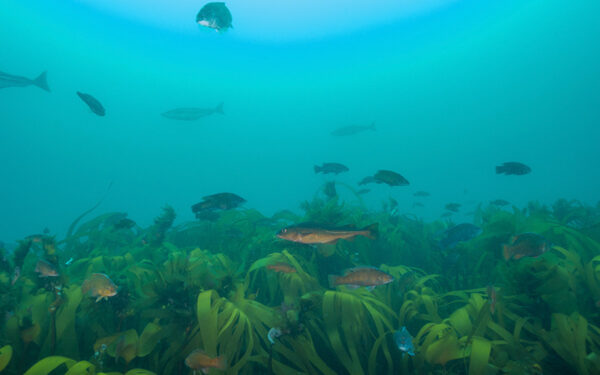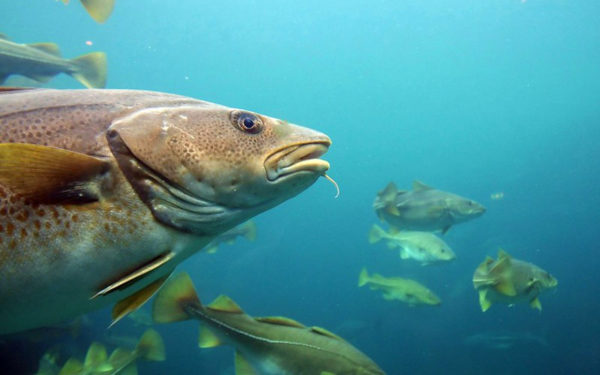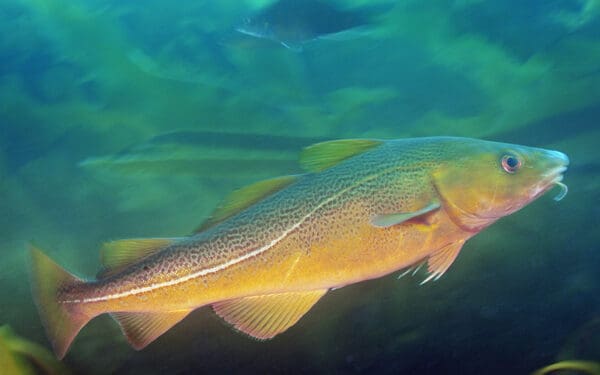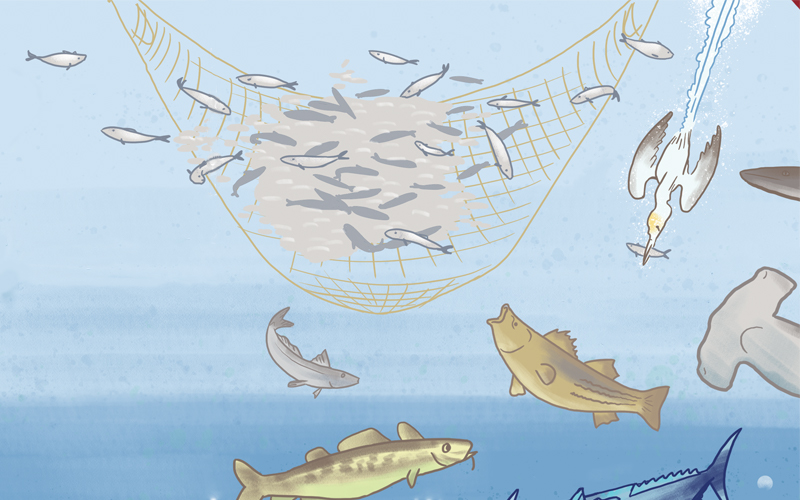
Large fish, whales, and seabirds all eat Atlantic herring. Illustration: Josh Kramer
Atlantic herring is one of the most important fish in the Northwest Atlantic Ocean. It’s a major source of food for larger fish, whales, and seabirds. However, New England fishery managers currently don’t take herring’s key role as a food source into account when determining how many of the species commercial fisherman can catch.
Such a myopic approach could lead to overfishing of this keystone species and affect the health of the marine wildlife that depend on them. It could also hurt our fishing economy, since bluefin tuna, Atlantic cod, striped bass, and other commercially important fish are among those counting on herring as a food source. Our tourism economy could suffer too, as coastal seabirds and whale species such as humpbacks that support ecotourism in New England also thrive on herring.
Now, there’s a chance to improve how New England managers set herring catch limits. With growing evidence that the Atlantic herring population is not currently at a healthy level, we need our regional fishery managers to move this action forward and protect herring and the many species that depend on them.
An Ecosystem-Based Control Rule Would Create a Healthier Ocean
The New England Fishery Management Council has proposed a new approach for managing Atlantic herring in Amendment 8. One of its main components is to select a long-term control rule that sets catch limits for herring in a way that accounts for its critical role in New England’s ocean ecosystem as a whole.
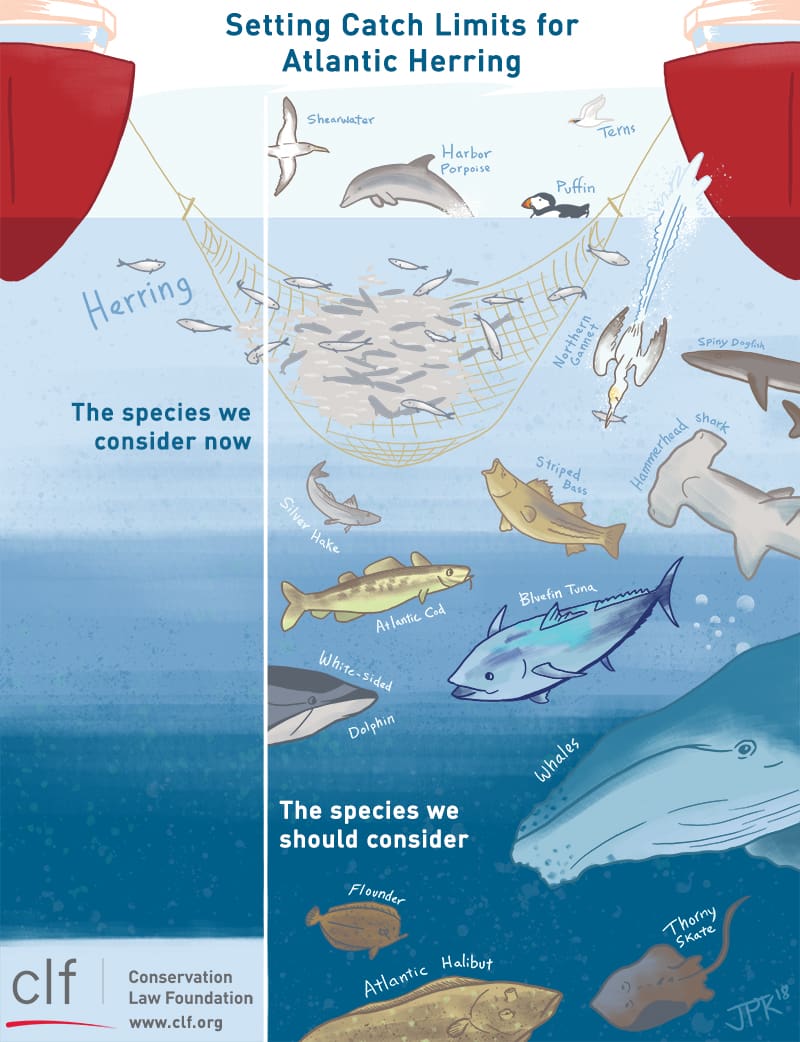
For too many years, we’ve set catch limits based only on how many herring can be caught to achieve maximum profits for the fishery, not how many herring can be caught and still leave enough to support marine species that eat them.
The latest research on setting catch limits for forage fish like herring suggests that we should be especially careful when deciding how many to remove from the ecosystem. If we aren’t cautious, we could cause the herring population to collapse. By setting an ecosystem-based catch limit that acknowledges herring’s important role, we can make the whole ocean healthier.
The New England Fishery Management Council is holding public hearings on Amendment 8 over the next month, with a vote scheduled for this September. Although there’s been talk for years about moving away from single-species management to a multi-species approach, Amendment 8 is the first opportunity to finally put something on the water. The Council has not managed herring for its key role as a food source in the past, so it’s important for you to speak up and demand they do better in the future.
Want to help? You can:
- Attend a public hearing and speak up in support of Amendment 8. The New England Fishery Management Council has scheduled hearings throughout New England so its members can hear from people like you. Attendance at hearings is important – managers in each state will be listening to see if people in their area are paying attention to this issue. Check here to find the hearing nearest you or attend an online hearing.
- Write a letter or send an email to the Council by June 25 at 5 p.m. to tell them you support Amendment 8 and ecosystem-based catch limits. Include “DEIS for Amendment 8 to the Atlantic Herring FMP” in the subject of your email, or send your letter to: Thomas A. Nies, Executive Director, New England Fishery Management Council, 50 Water Street, Mill 2, Newburyport, MA 01950
- Share our graphic and encourage your friends to help. The more people the Council hears from, the better our chances of getting this important improvement to catch limits made.

